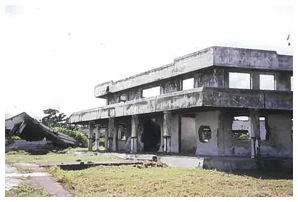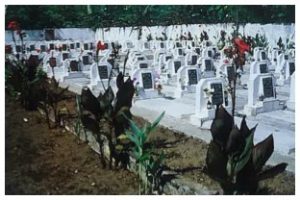Memo #141
By Melissa Crouch – m.crouch [at] unimelb.edu.au
 Conflicts between religious and ethnic communities in Indonesia last year raised fears that communal violence might again erupt across the archipelago, as it did from 1999 to 2001. Disputes between Muslims and Christians led to the burning of several churches, the bombing of a church in Central Java, and the displacement of 7,000 people in Maluku.
Conflicts between religious and ethnic communities in Indonesia last year raised fears that communal violence might again erupt across the archipelago, as it did from 1999 to 2001. Disputes between Muslims and Christians led to the burning of several churches, the bombing of a church in Central Java, and the displacement of 7,000 people in Maluku.
Tensions between the Indonesian military and locals in West Papua continue to simmer and minority religious communities such as Ahmadiyah continue to be targeted by hardline Islamic groups. This has produced outbursts of violence not seen for a decade.
The conflicts cannot be solved by strengthening the powers of the police and the military when rule of law enforcement itself is weak. Yet, this is what the Indonesian Ministry of Law and Human Rights has proposed in its Draft Law on Addressing Social Conflict. Instead of addressing systemic failures and a problematic culture of law enforcement, the draft law signals a return to authoritarian policies, confers wide powers to the police and military, and permits military involvement in religious and ethnic disputes.
The draft law would allow national or regional governments to declare a 90-day “state of emergency” in the event of social conflict. Most troubling, it allows for both military and extra-judicial intervention. In the latter case, the draft law proposes a Social Conflict Resolution Commission with extensive powers. Although the commission would include representatives from the military, the police, religious leaders, and the parties involved in the conflict, it would exist “outside of the courts.” Its decisions would not be subject to review, and therefore, made without accountability.
The draft law is not compatible with Indonesia’s young democracy, in place since 1998. If passed, the potential for military involvement and extra-judicial intervention – combined with the failure to reform the police – will exacerbate religious and ethnic tensions rather than diminish them.
About the Author:
Melissa Crouch – Research Fellow, Melbourne Law School, University of Melbourne.
Links:
- Indonesia: Trouble again in Ambon, International Crisis Group, October 2011.
- Indonesia: Hope and Hard Reality in Papua, International Crisis Group, August 2011.
- Crouch, Melissa. Indonesia, Militant Islam and Ahmadiyah: Origins and Implications, Melbourne Law School, 2009.
- Indonesia, International Crisis Grup, March 2012.
- Panitia Khusus RUU Penanganan Konflik Sosial, Dewan Perwakilan Rakyat Republik Indonesia, December 2011.
Related Memos:
- The Privatization of Security in Indonesia (Memo #20, by Abidin Kusno)
- Our other Memos on Indonesia

